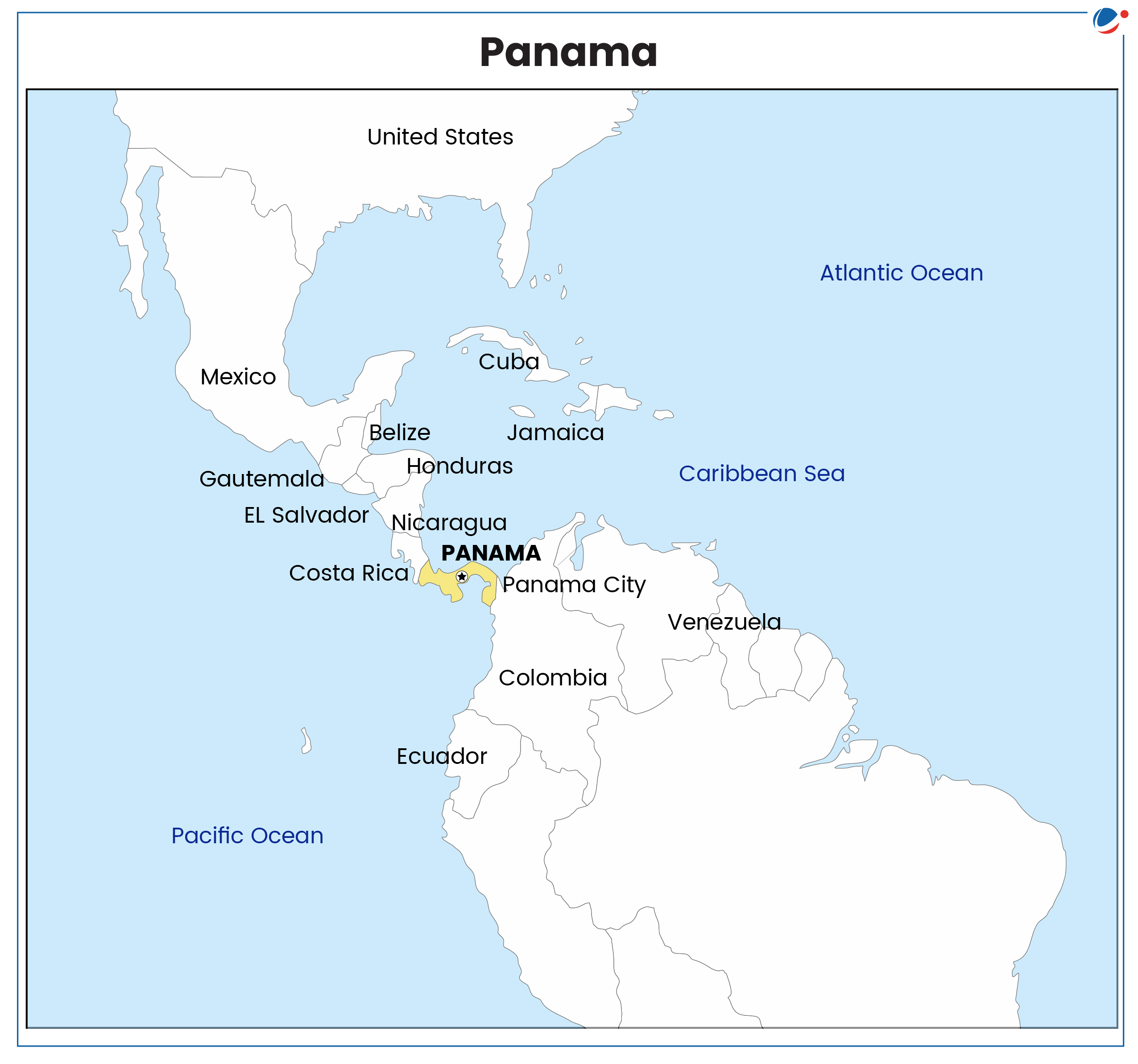
Why in the News?
Panama became first nation to evacuate island community over climate impact.
More about News
- About 300 indigenous Guna families are being relocated from the Gardi Sugdub island to the mainland Panama due to concerns over rising sea levels.
- Many of such small island developing states (SIDS) are facing existential threats due to rising oceans.
Related NewsCoalition for Disaster Resilient Infrastructure (CDRI): Infrastructure for Resilient Island States (IRIS) Programme
|
About Small Island Developing States (SIDS)
- SIDS are a group of small island countries and territories that share similar sustainable development challenges and face similar social, economic and environmental vulnerabilities.
- Not all SIDS are islands. Belize, Guyana and Suriname are also included because of their common characteristics.
- Ex of SIDS: Maldives, Seychelles, Marshall Islands, Solomon Islands, Suriname, Mauritius, Papua New Guinea, Vanuatu, Guyana, Singapore etc.
- The three geographical regions in which SIDS are located are: the Caribbean, the Pacific, and the Atlantic, Indian Ocean and South China Sea (AIS).
- SIDS were recognized as a special case both for their environment and development at the 1992 United Nations Conference on Environment and Development.

How is climate change affecting SIDS?
Despite their minimal historical greenhouse gas emissions, SIDS face some of the most severe impacts of climate change in form of loss and damage due to Extreme weather events, Sea level rise, Ocean Acidification, High temperatures, Climate variability etc.
- Threat of forceful displacement due to coastal erosion and submergence.
- E.g., it is estimated that, by 2050, half of Tuvalu's capital will be flooded by tidal waters.
- Economic impact: E.g., Ocean Acidification impacts marine ecosystems like coral reefs and affects tourism, fisheries, etc.
- From 1970 to 2020, SIDS lost US$153 billion due to weather extremes, a significant amount relative to the average GDP for SIDS, $13.7 billion.
- Disproportionate impact on indigenous population: Fear of loss of connection to cultural roots, traditional livelihood and way of living.
- Climate injustice: Accounting for only 1% of global emissions, SIDS hold the least responsibility for the climate crisis, yet suffer from its worst impacts.
- Lack access to economic prowess and technological advances to tackle climate change.
- Despite being disproportionately affected by climate change, they had access to a mere US$1.5 billion out of the US$100 billion pledged in 2019.
- The aggregate population of all SIDS, living across more than 1,000 islands, is less than 1% of the world's population.
- Adverse impact on health: Due to heat waves and increased outbreaks of vector-borne diseases.
- Access to drinking water: Climate change and sea-level rise are likely to threaten freshwater resources through saltwater intrusion within freshwater aquifers.
- E.g. Bahamas is almost entirely dependent on groundwater.
- Agriculture and food security: Affected by heat stress, changes in soil moisture and evapotranspiration, and changes in extreme weather events, such as tropical cyclones, floods and droughts.
Way forward
- Enhancing adaptive capacities: Integration of appropriate risk reduction strategies with other sectoral policy initiatives in areas such as sustainable development planning, disaster prevention and management, integrated coastal management, and health care planning.
- Improve data collection and technical capacity through climate change impact andvulnerability assessments for efficient designing and planning of adaptation policies and strategies.
- International Financing: Due to high costs of adaptation and mitigation, international assistance is vital for research into traditional, natural and innovative forms of adaptation.
- Bridgetown Initiative (2022): To address the immediate needs of countries facing debt distress, proposes a SDG Stimulus package to invest in SDGs, while stressing the need for reform of the international financial architecture.
- Nature-based solutions: Tapping traditional knowledge and innovations for using natural resources and processes to reduce impact of climate change.
- E.g. Blue Carbon projects, restoring degraded ecosystems etc.
- Promote renewable energy: Increased use of wind, solar and geothermal power as well as ocean thermal and tidal energy conversion to reduce reliance on fossil fuels.
- E.g. SIDS Lighthouses Initiative- target of 10GW renewable energy installed capacity in all SIDS by 2030.
Global measures
|





